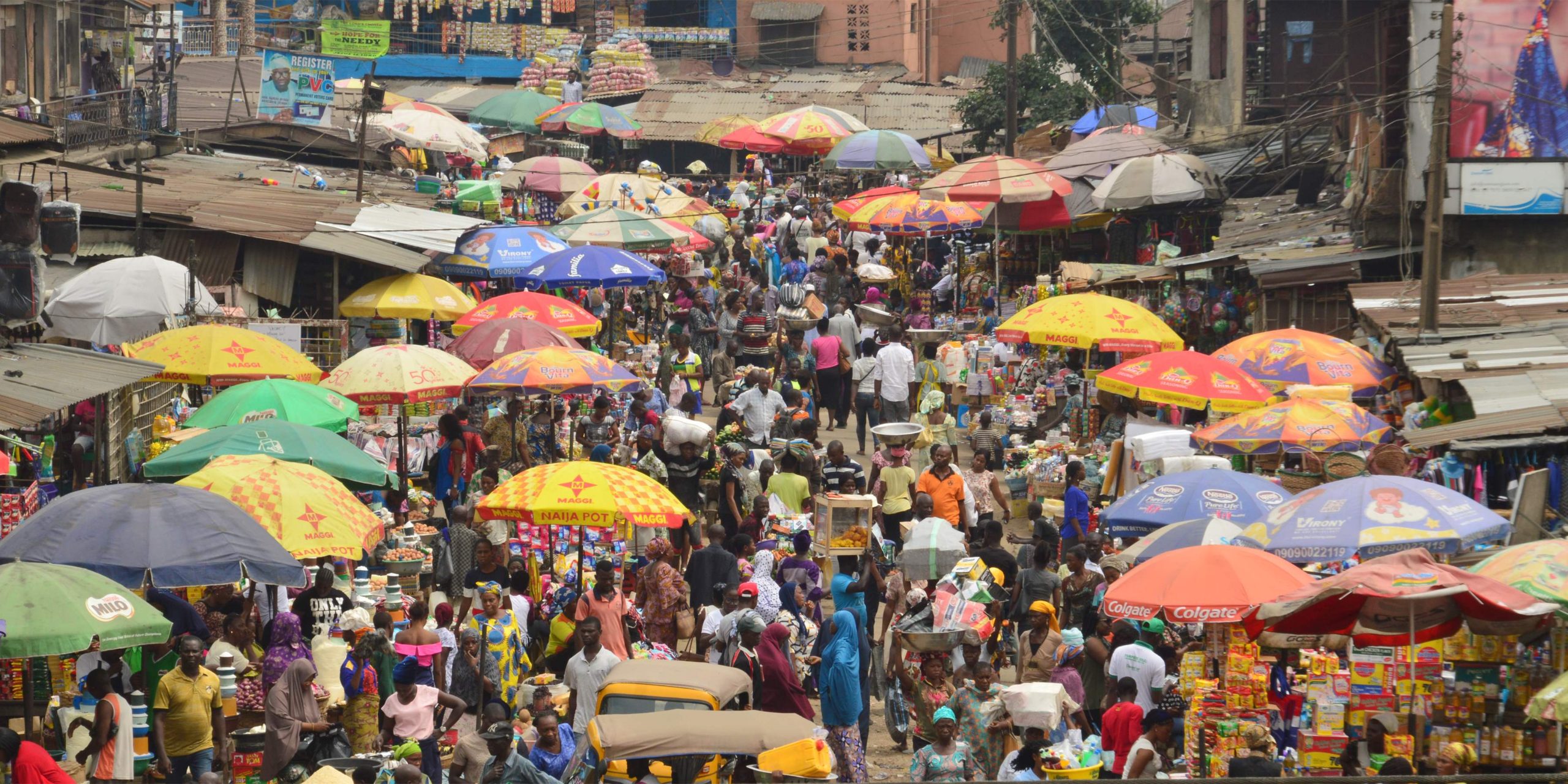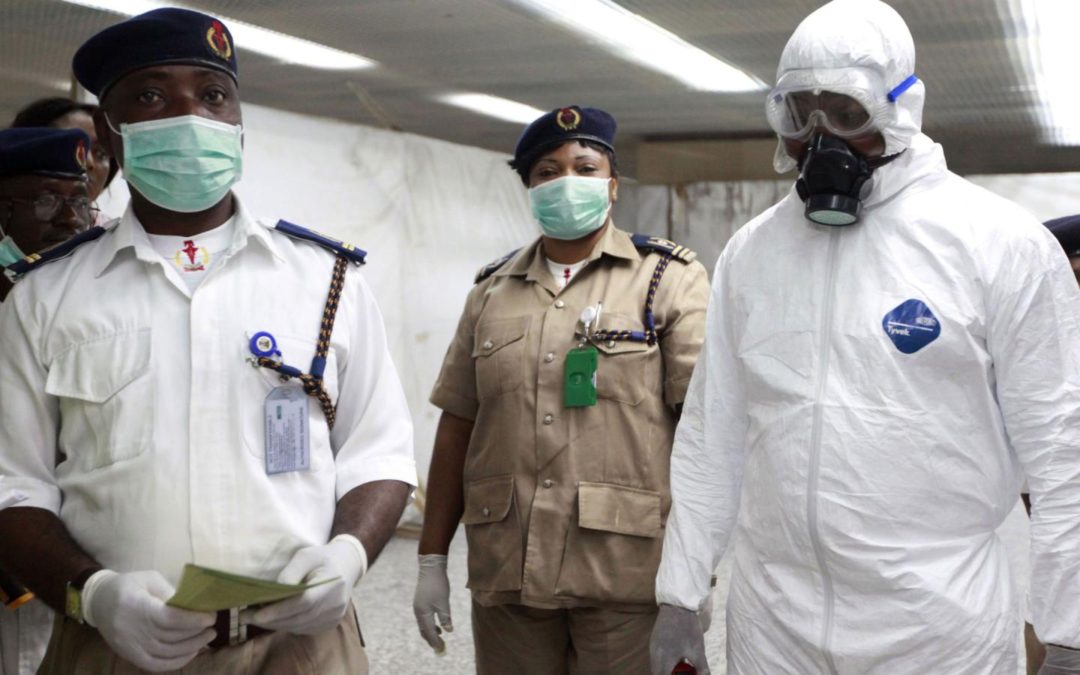As more than 25 million people are placed on a two-week lockdown in parts of Nigeria in a bid to curtail the spread of coronavirus, poor people in congested neighbourhoods are worried about how they will cope, writes the BBC’s Nduka Orjinmo from the commercial capital Lagos.
“From where do we get the extra water to wash the hands you are talking about,” asked Debby Ogunsola, 36, as she led me down a dark corridor towards her room in the Alapere area of Lagos state.
A lockdown in Lagos – the commercial hub of Nigeria, as well as the neighbouring state of Ogun and the capital Abuja – came into force on Monday night, following an announcement by President Muhammadu Buhari that the fight against the virus was a “matter of life and death”.
For Ms Ogunsola it will be difficult to remain indoors. She and her family live in one room in a block of 20, locally called Face-me-I-face-you because of their close proximity to each other.
There is no electricity, and when I visited, light was coming in through where a door should have been standing. Outside there were two toilets and bathrooms shared by all the families living in the 20 rooms.
‘Fearing hunger, not the virus’
There is no pipe-borne water either in Alapere, and Ms Ogunsola is forced to walk more than 50 metres to a broken public water pipe for her supply.
“It’s my children I am worried about,” she said.
All four of them were lying on the floor as it rained outside. A single window was the only source of air into the room and it could get very hot at night.
“If I am not able to go out and sell, how will they [children] survive?” asked Ms Ogunsola, who earns money by selling fruit and vegetables by the roadside.

Her husband works at an oil rig in the southern city of Warri and is due to come home in a month. But several states – including Rivers, Delta, Kano and Bayelsa – have closed their borders, prohibiting inter-state movement. So if the lockdown is extended, it could be a while before she is reunited with her husband.
“It is hunger I am worried about, not a virus. I even heard it doesn’t kill young people,” Ms Ogunsola told the BBC.
Though there is a higher mortality rate among the old and those with underlying health conditions, young people are also dying of the virus – and they can transmit it if they do not act responsibly.
No money to stockpile
Across an open drain from Ms Ogunsola’s residence are more rows of similar apartments. One has an expansive veranda where two old women were sitting and talking.
It is not uncommon for urban Nigerian families to live with older relatives, who also double up as nannies.
And the concern is that these old people could be at risk if the virus spreads.
“They are at home and they are still gathering in crowded conditions. If you were to have someone who has the virus there, the chances of spreading it is high,” said Dr Oyewale Odubanjo, a public health expert.
In Italy, many multi-generational families also live together and this is one reason why it has seen more coronavirus deaths than any other country.
All non-essential travel has been banned in most states and many workers, including civil servants, have been told to work from home.
But with a lack of reliable electricity supplies and poor internet connections, it is hard to see how most people will get any work done.
There were long queues at supermarkets after President Buhari announced the lockdown, with people rushing to stock up on essentials.
But many Nigerians live hand-to-mouth, often on less than $1 (£0.80) and they cannot stock up on food or other essentials.
Many workers are also yet to be paid their wages for March so there are deep concerns about the financial implications of a lockdown.
Mr Buhari outlined some measures to ease the hardship, including a one-month advance payment of the monthly $13 given to the poorest of the poor, but most people feel that millions of self-employed Nigerians have been left without financial aid.
“It’s only those who have money that can buy now. If you do not have what can you do?” said a taxi driver parked outside a supermarket.
Source: BBC

